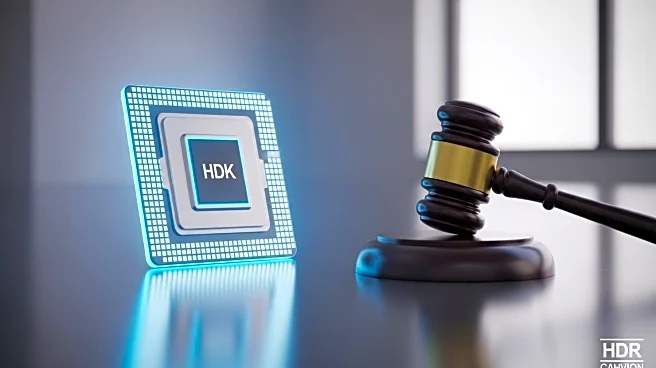What is the story about?
What's Happening?
Arm Holdings has announced plans to appeal a U.S. federal court ruling in Delaware that favored Qualcomm in a licensing dispute. The court found that Qualcomm's subsidiary, Nuvia, properly licensed central processor units under an agreement with Arm. The jury reached a verdict on two out of three counts, resulting in a mistrial on the third. Arm's request to overturn the verdict or hold a new trial was denied by Judge Maryellen Noreika. Arm remains confident in its position and intends to seek an appeal to overturn the judgment. Qualcomm, on the other hand, views the decision as a validation of its compliance with the agreement, emphasizing its right to innovate.
Why It's Important?
The outcome of this legal battle holds significant implications for the semiconductor industry, particularly for companies relying on Arm's technology. A successful appeal by Arm could alter licensing agreements and impact Qualcomm's operations and innovation strategies. The case underscores the competitive dynamics in the chip industry, where licensing agreements are crucial for technological advancements. The decision also affects other major players like Apple and MediaTek, who utilize Arm's technologies. The appeal process will be closely watched by industry stakeholders, as it could set precedents for future licensing disputes.
What's Next?
Arm's appeal will proceed through the judicial system, potentially leading to further legal scrutiny of the licensing agreements. The outcome could influence future negotiations and partnerships within the semiconductor industry. Companies involved may need to reassess their strategies depending on the appeal's result. The industry will be monitoring the appeal's progress, as it could impact market dynamics and competitive positioning.
















